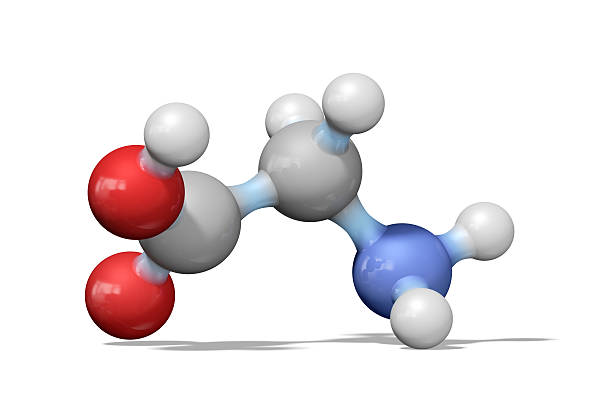Creatine Methyl Ester
Exploring Creatine Esters: The Next Evolution of the Molecule That Powers Performance
Creatine has long been a cornerstone supplement in the fitness world, but its derivatives - particularly creatine methyl ester and creatine ethyl ester - have sparked intense scientific interest.
This comprehensive guide explores how these modified creatine molecules work, their potential benefits, and what the latest research reveals about their effectiveness in elevating athletic performance.

What Are Creatine Esters and How Do They Differ from Standard Creatine?
The esterification of creatine represents a significant advancement in supplement science. Creatine esters are modified forms of creatine where the molecule has been bonded with an ester group to potentially enhance its bioavailability.
The most common variants are creatine methyl ester and creatine ethyl ester, each designed to improve upon traditional creatine monohydrate's absorption limitations.
Standard creatine is naturally hydrophilic, which can limit its cellular uptake.
Through esterification, scientists aim to create more efficient delivery mechanisms for this vital compound.

How Does the Creatine Transporter System Work with Different Forms of Creatine?
The creatine transporter (CRT) plays a crucial role in how our bodies utilize this compound. When we consume creatine supplements, their effectiveness largely depends on how well they interact with this transport system.
The uptake of creatine through cellular membranes is a complex process that researchers continue to study.
Recent studies have shown particular interest in how different esters might bypass or enhance this natural transport system, potentially leading to higher intracellular creatine concentrations.

What Does Scientific Evidence Say About Creatine Ethyl Ester?
Research regarding creatine ethyl ester has produced mixed results. While some studies have shown promising initial data, others suggest that this derivative may not significantly increase creatine levels more effectively than traditional forms.
The present study of creatine ethyl ester continues to evolve as researchers explore its mechanisms of action.
Its molecular structure, as documented in PubChem with a unique CID, shows how this compound differs from standard creatine monohydrate.

Can Creatine Methyl Ester Really Enhance Muscle Performance?
The biological activities of creatine methyl ester have been extensively studied. This derivative aims to improve upon the phosphagen system, working alongside creatine kinase to regenerate ATP from ADP more efficiently.
Multiple supplier lists show its growing availability as a dietary supplement.
Current research focuses on whether this form can truly elevate performance beyond what's previously shown with standard creatine supplementation.

The Role of Standardization: From Patent to Product
The journey from patent to product involves rigorous standardization processes. The FDA Global Substance Registration System (GSRS) and other regulatory bodies ensure compliance with safety and quality standards.
Chemical names and structures must be precisely documented, as seen in databases like DSSTOX.

Understanding the Chemical Structure: From Glycine to Guanidine Acetic Acid
The molecular foundation of creatine esters begins with amino acid modifications. The compound c5h11n3o2 serves as the base structure, while esterification adds new properties.
This process involves complex chemistry that builds upon the original creatine molecule.

How Do Different Forms Impact Total Creatine Content in Muscles?
Measuring creatine and PCR levels in muscle tissue reveals interesting patterns about how different forms are utilized.
Studies have shown varying results in how these compounds affect intracellular creatine concentrations, with some forms showing promise in their ability to synthesize and maintain higher levels.

The Importance of Bioavailability in Creatine Supplements
The cellular uptake mechanisms of different creatine forms vary significantly. While traditional creatine monohydrate has proven effective, researchers continue to explore ways to enhance absorption through chemical modification.
Product information often highlights these potential advantages.

What Role Does the Kidney Play in Processing Different Creatine Forms?
The kidney's role in creatine metabolism is crucial, as it helps maintain optimal creatine levels while preventing excessive creatinine formation.
Understanding this process has been vital in developing more effective supplementation strategies.
Future Directions: What's Next for Creatine Research?
Scientific evidence continues to emerge about various forms of creatine. Research by Zhao and others suggests new directions for development, while the American College of Sports Medicine maintains updated positions on supplementation efficacy.
Key Points to Remember:
- Creatine esters represent modified forms of the original molecule
- The creatine transporter system plays a crucial role in supplement effectiveness
- Different forms of creatine show varying levels of bioavailability
- Standardization and quality control remain essential for supplement safety
- Research continues to explore optimal dosage and delivery methods
- Kidney function plays a vital role in creatine metabolism
- Scientific evidence supports some forms more strongly than others
Works Cited
- Jagim, Andrew R., et al. “The Efficacy of Creatine Ethyl Ester Supplementation Combined with Resistance Training on Muscle Mass, Strength, and Power.” Journal of the International Society of Sports Nutrition, vol. 9, no. 1, 2012, doi:10.1186/1550-2783-9-11.
- This study provides insight into the effectiveness of creatine ethyl ester compared to traditional creatine monohydrate. Findings highlight differences in muscle mass, strength, and power outcomes after supplementation.
- Muscle & Strength. “Creatine Ethyl Ester Ingredient Fact Sheet.” Muscle & Strength, www.muscleandstrength.com, accessed Nov 10, 2024.
- This fact sheet explains the structure, mechanism, and benefits of creatine ethyl ester, detailing its lipophilic properties for enhanced cell wall permeability and reduced side effects compared to monohydrate forms.
- Horizon Clinics. “Creatine Ethyl Ester vs Creatine Monohydrate - 6 Differences.” Horizon Clinics, www.horizonclinics.org, accessed Nov 10, 2024.
- This article compares bioavailability, solubility, and muscle performance effects of creatine ethyl ester and creatine monohydrate, concluding that traditional creatine monohydrate shows higher stability and effectiveness in most studies.
For More Training Advice + Diet and Lifestyle visit us Combat Creatine
PS: Make sure you check out the rest of our Creatine Guides:
Creatine
Creatine Supplements Ultimate Guide
Creatine Supplementation Side Effects
Best Creatine Monohydrate Gummies Review: Top 10 Best Creatine Gummies












